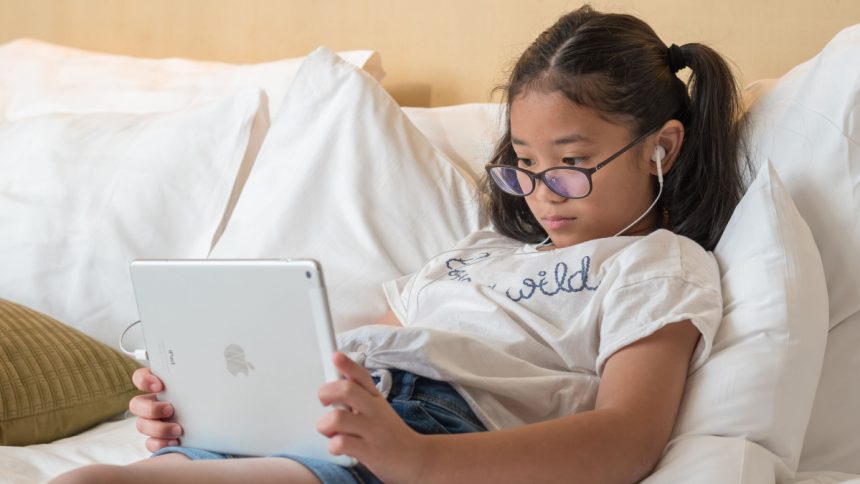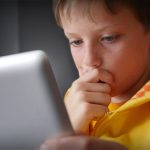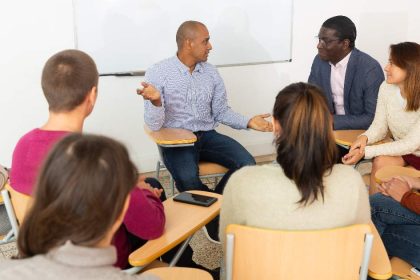New research reveals the educational impact of the digital divide.
Australian school children value reading to help them “get a good job”, but when it comes to digital reading opportunities, only a quarter have daily access to devices, new Australian Catholic University (ACU) research shows.
The research, involving 318 students from diverse primary schools across Australia, found while 92 per cent of students believed reading was a valuable skill, 86 per cent justified this by linking reading with having a good job following school.
But when it came to future career opportunities, Associate Professor Laura Scholes, of ACU’s Institute for Learning Sciences and Teacher Education, says her study showed students’ personal circumstances and reading experiences did not necessarily prepare them for success as readers or provide them with the resources needed to transition into desired careers.
“There is near consensus about the importance of reading for future life opportunities, but despite the rhetoric of children being digital natives, there is still significant inequality when it comes to students’ experiences as readers in the digital age,” Associate Professor Scholes says.
“This research shows children as young as eight are already conceptualising reading as a gatekeeper to success. Inequity in digital access at home and at school has serious implications for students’ reading experiences, digital participation, and future career trajectories.”
Some digital texts are better than others
The study, published in Cambridge Journal of Education, highlighted the fact that not all digital texts were created equal.
“Access to social media such as TikTok, for example, does not have the cultural, educational, or transformative power students need to read, synthesise and evaluate complex information available on the internet,” she says.
Associate Professor Scholes says the rapid growth in digital gaming literacies, which helped children to develop literacy skills by reading, decoding, and comprehending storylines, should also be harnessed in the classroom.
“Digital texts that require evaluation of multimodal elements to make meaning are ideal for extending reading experiences,” she told EducationDaily. “Gaming texts, for instance, feature narrative structures, interactive play systems, and multimodal elements that reframe links between decoding, texts and technology. Recent evidence suggests that gaming texts can enhance literacy learning by focusing attention on unfamiliar words, letters, and vocabulary, while supporting memory. However, these digital text types are not currently mainstream in classrooms.”
Economic disadvantage can impact educational outcomes
The study of students in Years three and four from a range of school sectors and socio-economic backgrounds found, while 25 per cent had daily access to digital devices, 27 per cent did so a few times per week, 19.5 per cent once a week, and 6.5 per cent once a fortnight.
Worryingly, 22 per cent of the 152 boys and 166 girls reported having hardly any access to digital devices.
“These findings counter the taken-for-granted assumptions often held by educators, policy makers, and broader society when it comes to students’ literacy experiences, particularly access to and understanding of digital texts, and students’ multimodal skills,” Associate Professor Scholes says.
Reading in school, work and life is changing markedly due to the acceleration of technology. With that evolution, Associate Professor Scholes told EducationDaily that “new modes of communication offer new digital reading opportunities due to children’s engagement with mobile devices”.
“Many people today are immersed in a multitude of digital spaces, such as multimedia websites, interactive graphics, e-books, digital e-readers – like Kobo and Amazon Kindle – and social media,” she says. “They are reading by decoding multiple modes (visual, verbal, and action modes) as they make meaning of ebooks, online search engines, webpages, multimodal media, video gaming, and immersive experiences that change the reading experiences through augmented reality, virtual reality, or extended reality.”
Nurturing 21st century learners
To help ensure an equitable educational experience, she says “students need experiences with digital texts to develop the digital reading proficiencies needed to be 21st century learners, communicators, workers, and active citizens”.
“Marginalised students are not being given the opportunities to decode, comprehend, and evaluate digital texts using words, images, graphics, and gestural and aural modes as required by digital economies and cultures that rely upon such sophisticated discourses.”
Associate Professor Scholes says the rapid growth in digital gaming literacies, which helped children to develop literacy skills by reading, decoding, and comprehending storylines, should also be harnessed in the classroom.
“Developing digital literacies requires the redistribution of resources to allow for this and provide the equitable access that all Australian school children need and deserve,” she says.
“Young students have already made the link between reading skills and desired workplace opportunities, but the inequity in resources means this is not a level playing field. As such, the teaching and learning of reading in the digital world is a significant social justice issue.”
Families can help bridge the digital divide
To help overcome Australia’s digital divide, Associate Professor Scholes told EducationDaily that families can support their children by engaging them in reading via digital platforms for educational purposes. Nurturing this habit, she says, helps children learn “how to access information and make meaning rather than providing digital platforms purely for entertainment”.
Schools also play a significant role in boosting levels of digital device-led learning and literacy.
“Schools need to be resourced by the government to help break down the digital divide and ensure schools have access to the infrastructure to support learning on digital platforms.”








